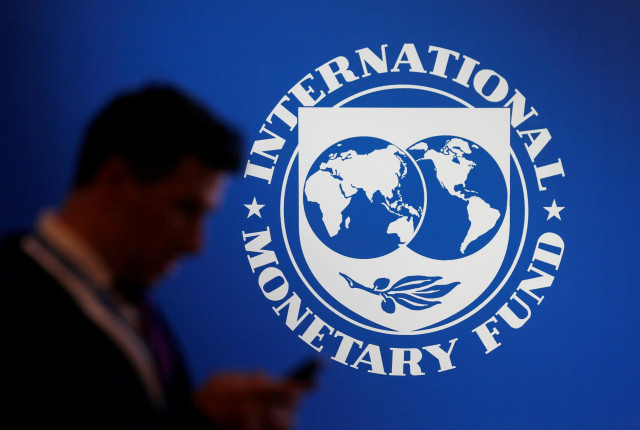IMF programme: is there an alternative?
PM can say no to new IMF loan, start domestically owned ‘Reform and Growth Programme’

The review of IMF’s standby arrangement (SBA) is complete, and Pakistan is now seeking another IMF programme with the aim of “permanently resolving its fiscal and external sustainability weaknesses, strengthening economic recovery, and laying the foundations for a strong, sustainable, and inclusive growth”. This is expected to be the 25th IMF programme.
Can an IMF programme “permanently” solve our economic problems? Is there an alternative to this? And if there is an alternative, what it would be? As Dr Nadeemul Haque and others have rightly expressed many times, an IMF programme should be considered like an ICU (Intensive Care Unit). A patient cannot be permanently kept in an ICU and should graduate to a normal ward and be discharged back to a healthy life.
No patient should be happy by living permanently in an ICU and no professional doctor will allow it.
Countries do encounter balance of payments crisis, which are often but not exclusively rooted in fiscal policies. If Pakistan as an economic patient is again asking to be admitted in an ICU, as the prime minister has already announced, one thing is certain: we are not taking our prescribed medicines seriously. However, let’s also consider the other possibility: the doctor is not professional. The patient is seeking admission to the ICU with the same diagnosis, for the 25th time!
This is what the IMF press release highlights as the key objectives of the anticipated 25th programme: Strengthening public finances, energy sector viability, returning inflation to target, flexible forex market, private sector-led activity, SOE (state-owned enterprises) reforms, and investment in human capital.
This is a familiar list. One conclusion should be straight forward: previous treatments have failed.
IMF programmes have not resulted in an efficient public finance system despite legislations, a viable energy market despite significant tariff escalation, taming inflation despite discount rate hikes, stable forex rate despite securing central bank autonomy, privatisation despite all planning, and educated and healthy workforce despite spending more resources through devolution.
If history is any guide, another IMF programme will not itself resolve our problems. Now, we come to the next question: is there an alternative to the next IMF programme? If this is just a question of meeting external funding gaps, my short answer would be yes.
Read ‘Longer IMF programme could lead to debt trap’
Pakistan’s external situation is vulnerable but not disastrous. IMF, after its first review of SBA, scaled down projections of external funding requirements to around $25 billion, though later estimates indicate $27 billion as well. While this is the total requirement, the gap was estimated to be $6.5 billion during this fiscal year and is likely to be in the same range next year as well.
This gap can be bridged by non-debt inflows such as increased exports, remittances, and foreign direct investment. Roshan Digital Accounts can also help. We do not need debt-creating inflows, including the IMF. On the other hand, if the question is posed again and one asks, does our government have an alternative reform programme, the answer will be no. There have been some efforts by other institutions such as the PIDE Reform Manifesto and the PRIME Charter of Economy.
Our lenders, including the IMF, should understand this simple rule: a government which seeks external loans only as a budgetary support measure, rather than for economically viable projects, has failed to bring its own house into order.
Providing more loans to such a government just provides it with a negative incentive to avoid reforms. It creates a moral hazard. The loans provided in the garb of institutional reforms, therefore, should be discontinued. The FBR and the government of Pakistan owe an explanation to the country’s taxpayers: what is the result of a $700 million loan, counting both the World Bank and the Asian Development Bank, which was contracted in the name of FBR reforms? Why these institutions keep on lending us?
Fiscal prudence lies at the centre of the IMF programme. Excessive government spending requires borrowing, which not only increases inflation but also crowds out the private sector.
When we have already committed to move towards a balanced budget in our constitution, why do we need to sign up a new IMF programme? We have the Fiscal Responsibility and Debt Limitation Act 2005 and the Public Finance Management Act 2019 as well as the State Bank Autonomy Act 2021.
This legislative framework is sufficient to define fiscal boundaries of the federal government, which are further enforced by the NFC Award, that should be respected.
With a comfortable majority in parliament, and backed by the military establishment, Prime Minister Shehbaz Sharif has a golden opportunity to say no to a new IMF programme and start a domestically and politically owned “National Reform & Growth Programme”.
This, however, should not be decided by in-house committees and should not be done in a rush. It needs national and open debate, with extensive participation from all stakeholders.
Ultimately, it is parliament which needs to take the ownership and steer our country to a prosperous future.
The writer is Founder and Executive Director of PRIME, an independent economic policy think tank in Islamabad
Published in The Express Tribune, March 25th, 2024.
Like Business on Facebook, follow @TribuneBiz on Twitter to stay informed and join in the conversation.



















COMMENTS
Comments are moderated and generally will be posted if they are on-topic and not abusive.
For more information, please see our Comments FAQ